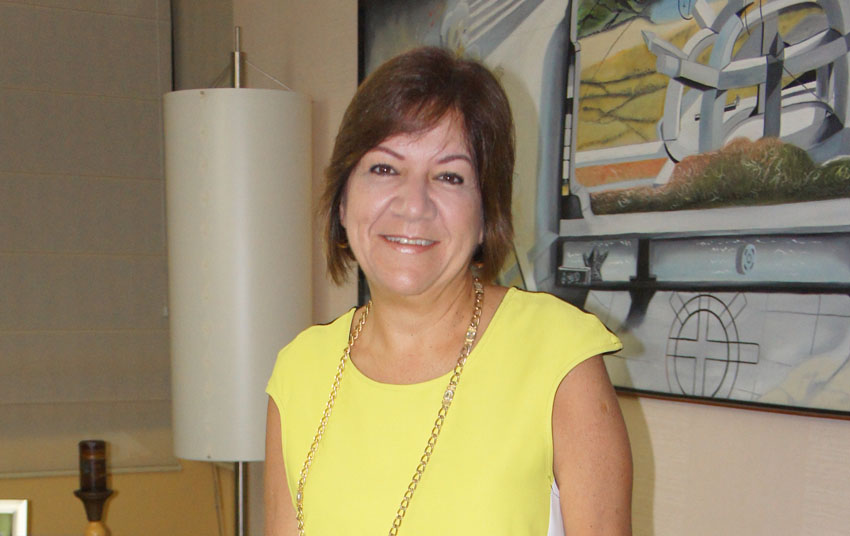Joseba Etxarri. Co-owner of what is called in Venezuela a “convenience store,” a small store that combines different projects, this woman born in Caracas resides in the State of Carabobo and is able to coordinate and find time to perform what she calls her five facets or main occupations: being mother, wife, entrepreneur, Basque and Venezuelan.
-How is life in Venezuela?
-Expensive. In the last three months the price of some products has increased six-fold. There is a shortage of projects, including some that are considered current are scarce and are now sold at prohibitive prices or you can’t get them. There are companies that have been stopped for months, there are no cars to sell, there are no parts….To get some products you have to go to the establishment at dawn, or wait in line but maybe even doing so you will not get it, and you'll have to come back. The lack of security is also a big problem.
- You used to like to travel
- Yes, I can say with pleasure that everywhere I’ve been, being Basque has helped me. I have visited Basque clubs in Argentina, Uruguay, Chile…even in Australia and all of them made me feel at home within the first five minutes of my being there.
- As a child you were one of the first at the famous Ikastola Euskadi-Venezuela at the Eusko Etxea in Caracas.
- That was when I was six, with another seven kids. That is how the Ikastola started. My life in fact has been always linked very closely to the Basque club, participating in its activities.
-Later you moved to Valencia, in the State of Carabobo.
-And then I became a Member of the Eusko Etxea in Carabobo. In Caracas I had always danced and here I became easily integrated. My daughters have also dressed in costume from a young age. One of them, Maite, is now in charge of taking club photos.
-That must have something to do with you being club president for the last three months.
-What I less expected when attending the General Assembly in May was that they were going to elect me as president. The titles aren’t important. What is though is the commitment, our commitment so that the club doesn’t disappear.
-Where is the club now?
-We have a great chef, Ander Unamuno, who went to Euskadi to study gastronomy and who does great work with his culinary offerings. We have a covered fronton and a pool and we organize a large number of festivals, Aberri Eguna, San Juan, San Fermin. Last July we welcomed 300 people who attended the encierro that we organized, with total respect, of course, for the calves we brought. Economically we are in line: while there are no extraordinary expenses we are OK, but if not, we have to pitch in with extra dues. We have three generations of members, but many of them are between the ages of 50 and 65 and our goal is to attract more youth.
-Last August the town where the Eusko Etxea of Naguanagua is celebrated the feast of the Virgin of Begoña.
-She is the local patron Saint since 1782, and that shows how old goes the Basque presence in this land. The town celebrates it on August 15th. In that way, organized by the Mayor’s Office, there is Mass at the Church of Our Lady of Begoña, where the Basque participate as well with an offering. Along with that, from the beginning of august the town celebrates the Begoña Festival. The Basque club also participates by inviting the local authorities to the festivities at our facilities. We celebrated different events; we have pelota matches and two buses of members of Eusko Etxea in Caracas came to attend.
-Speaking of festivities, the Eusko Etxea of Carabobo will celebrate its 40th in 2015. Are you thinking of celebrating it in some way?
-We would like to bring some group from Euskadi. Eight years ago the group Ortzadar came from Pamplona in a tour that was a complete success. We would like a visit like that. If there is a dance or music group in Euskadi or any other place in the Diaspora that would like to come, we kindly accept any suggestions or proposals. Our email is: valenciakoeuskoetxea@gmail.com.






 Send to a friend
Send to a friend Add comment
Add comment








